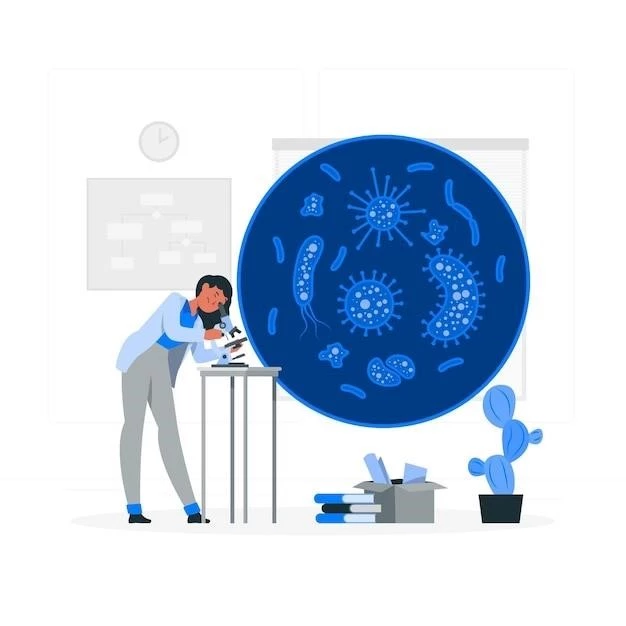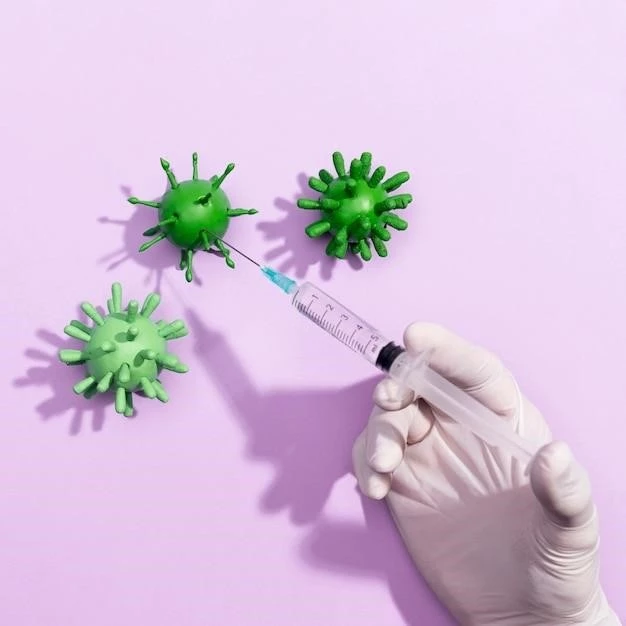Disease ⎼ Listeriosis
Listeriosis is a serious foodborne illness caused by the bacterium Listeria monocytogenes. This bacterium can be found in contaminated food, soil, and water.
It is crucial to understand the risks, symptoms, diagnosis, treatment, prevention measures, and outbreaks related to Listeriosis to safeguard public health.
Overview of Listeriosis
Listeriosis is a bacterial infection caused by Listeria monocytogenes, a bacterium found in soil, water, and some animals. This infection is usually contracted by consuming contaminated food, particularly unpasteurized dairy products, raw vegetables, and ready-to-eat deli meats and hot dogs.
Individuals with weakened immune systems, pregnant women, the elderly, and infants are at higher risk of developing severe symptoms or complications from Listeria infection. The bacterium can survive and even grow in environments with refrigeration temperatures, making it important to handle and store food properly to prevent contamination.
Unlike many other foodborne pathogens, Listeria monocytogenes can grow in the cold temperatures of the refrigerator; This adaptability contributes to its ability to cause illness even when food is properly stored. Symptoms of Listeriosis can include fever, muscle aches, nausea, and diarrhea.
Pregnant women infected with Listeria may experience only mild flu-like symptoms, but the infection can lead to miscarriage, stillbirth, premature delivery, or life-threatening infections in newborns. The elderly and individuals with weakened immune systems are also at a higher risk of severe complications from Listeriosis.
For healthy individuals, Listeria infection may cause short-term symptoms that resolve on their own without specific medical treatment. However, in more severe cases or for those at a higher risk, antibiotics may be necessary to treat the infection.
Practicing good hygiene and safe food handling practices is essential to prevent Listeria contamination. This includes washing hands and surfaces often, cooking food to safe temperatures, and avoiding unpasteurized dairy products, raw sprouts, and deli meats unless heated to steaming hot.
Symptoms and Risks
Listeriosis can present with a range of symptoms, including fever, muscle aches, nausea, and diarrhea. In severe cases, the infection can spread to the nervous system, resulting in headaches, stiff neck, confusion, loss of balance, and convulsions.
Individuals at higher risk of severe Listeria infection include pregnant women, newborns, the elderly, and those with weakened immune systems due to conditions like HIV/AIDS, cancer, diabetes, or organ transplant recipients who are on immunosuppressive medications.
Pregnant women infected with Listeria may experience mild symptoms, but the infection can lead to miscarriage, stillbirth, premature delivery, or severe illness in newborns. It is crucial for pregnant individuals to seek medical attention promptly if they suspect Listeria exposure.
For the elderly and immunocompromised individuals, Listeria infection can cause severe complications such as septicemia, meningitis, and encephalitis. These conditions require immediate medical intervention to prevent long-term health consequences or fatalities.
It is essential to be vigilant about food safety to reduce the risk of Listeria exposure. Properly cooking food, avoiding unpasteurized dairy products, washing raw fruits and vegetables thoroughly, and following safe food handling practices are critical steps in preventing Listeriosis.
If you are in a high-risk group or experience symptoms of Listeria infection, such as persistent fever, muscle aches, or gastrointestinal distress, seek medical attention promptly. Early diagnosis and treatment can help manage the infection and prevent complications associated with severe Listeriosis.
Diagnosis and Treatment
Diagnosing Listeriosis typically involves a medical professional conducting a physical examination, reviewing symptoms, and obtaining a medical history. Laboratory tests, such as blood cultures or cerebrospinal fluid analysis, may be performed to confirm the presence of Listeria monocytogenes.
If you suspect you may have contracted Listeria through contaminated food or have symptoms consistent with Listeriosis, it is crucial to seek medical attention promptly. Early diagnosis and treatment can help prevent the infection from progressing to more severe forms and reduce the risk of complications.
For mild cases of Listeriosis in healthy individuals, the infection may resolve on its own without specific medical intervention. However, for pregnant women, newborns, the elderly, and individuals with compromised immune systems, medical treatment is essential to manage the infection and prevent severe complications.
Antibiotics are commonly used to treat Listeriosis and are particularly crucial for individuals at high risk of severe illness. Your healthcare provider will determine the most appropriate antibiotic based on factors such as age, overall health, the extent of the infection, and antibiotic resistance patterns.
It is important to follow your healthcare provider’s instructions regarding the dosage and duration of antibiotic treatment for Listeriosis. Completing the full course of antibiotics is essential to ensure the infection is fully eradicated and to minimize the risk of recurrent or persistent Listeria infection.
In cases of severe Listeriosis that lead to complications such as septicemia, meningitis, or encephalitis, hospitalization may be necessary for close monitoring, supportive care, and intravenous antibiotics. Prompt medical intervention is critical in these instances to prevent life-threatening outcomes.
After completing antibiotic treatment for Listeriosis, follow-up care may be recommended to ensure the infection has been successfully cleared and to address any lingering symptoms or potential complications. Regular monitoring by your healthcare provider can help safeguard your health and well-being post-treatment.
Prevention Measures
Preventing Listeriosis involves adopting proactive measures to reduce the risk of Listeria contamination in food and the environment. By following these guidelines, you can protect yourself and your loved ones from this potentially harmful infection⁚
- Practice Proper Food Safety⁚ Thoroughly wash raw fruits and vegetables before consumption, cook meat and poultry to safe internal temperatures, and avoid consuming unpasteurized dairy products or raw sprouts.
- Handle Food Carefully⁚ Use separate cutting boards and utensils for raw meat, poultry, and seafood to prevent cross-contamination with ready-to-eat foods. Ensure all food preparation surfaces are cleaned and sanitized regularly.
- Store Food Safely⁚ Refrigerate perishable foods promptly at temperatures below 40°F (4°C) and ensure your refrigerator is set at the proper temperature. Consume leftover foods within a safe timeframe to reduce the risk of bacterial growth.
- Practice Good Hygiene⁚ Wash your hands thoroughly with soap and water before handling food, after using the restroom, and after touching animals. Keep kitchen surfaces clean and wash dishcloths frequently to prevent bacterial spread.
- Avoid High-Risk Foods⁚ Minimize consumption of deli meats, hot dogs, and other ready-to-eat refrigerated foods unless they are heated to steaming hot before eating. Be cautious with unpasteurized soft cheeses and refrigerated pâtés or meat spreads.
- Follow Special Precautions⁚ Pregnant individuals, the elderly, and those with weakened immune systems should take extra care to avoid high-risk foods and environments where Listeria contamination may occur. Consult with your healthcare provider for tailored advice.
By incorporating these prevention measures into your daily routine and food handling practices, you can significantly reduce the likelihood of Listeria exposure and infection. Stay informed about food recalls and advisory notices related to Listeria contamination to make informed choices about the foods you consume.
Remember that prevention is key in safeguarding your health and the health of your family. By being proactive and vigilant in your approach to food safety, you can minimize the risk of Listeriosis and enjoy peace of mind knowing you are taking steps to protect yourself from foodborne illnesses.
Outbreaks and Surveillance
Monitoring and surveillance of Listeriosis outbreaks are crucial for public health agencies to identify trends, track cases, and implement targeted interventions to prevent further spread of the infection. By staying informed about outbreaks and understanding the surveillance measures in place, you can protect yourself and your community⁚

- Government Oversight⁚ Health departments and regulatory agencies actively monitor cases of Listeriosis to detect potential outbreaks and investigate sources of contamination. These agencies work to ensure food safety standards are upheld and take swift action in response to identified risks.
- Reporting Cases⁚ Healthcare providers are required to report cases of Listeriosis to local health authorities to facilitate prompt investigation and control measures. If you suspect you may have Listeria infection or have been exposed to contaminated food, seek medical attention and inform your healthcare provider.
- Outbreak Response⁚ During Listeriosis outbreaks, public health officials collaborate with food producers, retailers, and distributors to identify and remove contaminated products from the market. Recall notices are issued to alert consumers to potentially hazardous foods.
- Surveillance Systems⁚ National and international surveillance systems track Listeriosis cases, enabling health authorities to detect patterns, identify high-risk populations, and implement preventive measures. These systems play a vital role in safeguarding public health and preventing widespread outbreaks.
- Public Communication⁚ Public health agencies provide updates and guidance to the public during Listeriosis outbreaks, including information on affected products, symptoms to watch for, and preventive actions to take. Stay informed through official channels to receive accurate and timely information.
- Community Engagement⁚ Individuals can contribute to outbreak prevention efforts by practicing safe food handling, promptly reporting illnesses, and following recall notices issued by health authorities. By working together as a community, we can help mitigate the impact of Listeriosis outbreaks.
Remain vigilant about food safety practices, stay informed about Listeriosis outbreaks in your region, and collaborate with health authorities to support surveillance and control efforts. By actively participating in outbreak response measures and adhering to recommended guidelines, you can help protect yourself and others from the consequences of Listeria contamination.
Remember, early detection, swift intervention, and community cooperation are essential components in effectively managing Listeriosis outbreaks and minimizing the impact on public health. Stay engaged, stay informed, and stay proactive in your approach to preventing foodborne illnesses.
